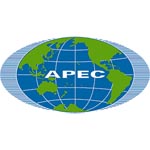APEC finance ministers reject early withdrawal of stimulus measures
 Singapore - Finance ministers of the Asia-Pacific Economic Cooperation (APEC) Thursday rejected an early withdrawal of stimulus measures implemented to overcome the global recession, saying that exit strategies depended on the degree of recovery in different economies.
Singapore - Finance ministers of the Asia-Pacific Economic Cooperation (APEC) Thursday rejected an early withdrawal of stimulus measures implemented to overcome the global recession, saying that exit strategies depended on the degree of recovery in different economies.
"We agreed on the crucial role that supportive fiscal measures in the APEC region had played in avoiding an even deeper recession and resolved to remain vigilant until the economic recovery gains traction," the finance ministers said in a joint statement after a meeting at the annual APEC summit in Singapore.
"The pace of implementing exit strategies should take into account different stages in the economic recovery of member economies, the type of policy measures to be phased out, and any spillovers caused by our strategies," the statement added.
Successfully exiting the extraordinary fiscal, financial and monetary policy measures as well as implementing credible medium-term fiscal consolidation strategies were key challenges facing the world in the post-crisis period, the ministers said.
Despite the challenges of the global crisis, the ministers said, the APEC economies were committed to supporting free and open trade and investment, adding that "we are, and will actively resist protectionist measures."
The ministers noted that APEC was also committed to pursuing economic growth that was inclusive and broad-based.
"Inclusive growth creates opportunities for all of our people to enjoy the benefits of regional economic integration," they said. "This will support domestic demand in the region."
APEC consists of the 21 Pacific Rim economies, bringing together rich nations such as the United States, Japan and Australia and countries where a large number of people still live in poverty like Papua New Guinea or the Philippines.
The APEC economies represent about 54 per cent of the global gross domestic product and 44 per cent of world trade.
The forum includes Australia, Brunei, Canada, Chile, China, Indonesia, Hong Kong, Japan, Malaysia, Mexico, New Zealand, Papua New Guinea, Philippines, Singapore, South Korea, Taiwan, Thailand, Peru, Russia, United States and Vietnam. (dpa)